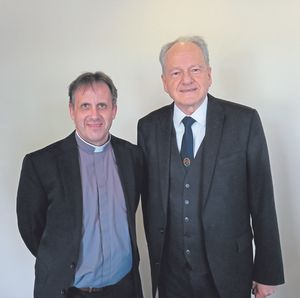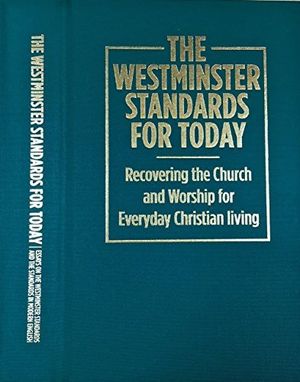‘Whom he predestined’, says Paul to the Romans, ‘these he also called; whom he called, these he also justified; and whom he justified, these he also glorified’ (Romans 8:30). It is not possible, therefore, that any who are predestined (from eternity), and called and justified (in time), should be lost!
It is not possible that any should be the objects of God’s eternal electing love and then fall away. It is not possible that those who are regenerated by the Holy Spirit should become unregenerate. Truly, a soul may backslide seriously. But fall away? No! Once the Lord has begun a good work in the sinner in regeneration, he will most surely complete that work (Philippians 1:6). Those whom he foreordains, he also glorifies (Romans 8:28-30). It is unthinkable that God could make a mistake or be frustrated in his work.
God perseveres
The truly saved person will, therefore, persevere to final salvation. This is the clear implication of the sovereignty of God, of the outworking of his decrees, of the application of redemption, and of the effectual call of God. Just as God has provided the means for that person’s salvation, and the basis for it in the work of Christ, so also he will surely preserve that soul to the end. James Macgregor put it so well: ‘The question of the perseverance of the saints really resolves itself into the question of the perseverance of God – in other words, of the power of the Almighty (Isaiah 40: 28-31; Romans 8:31)’.1
The same writer was later to affirm that ‘no sinner can ever perish for whom Christ gave His life on the cross’.2
Biblical basis
The biblical basis for the final perseverance of the saints is conclusive. Consider the following arguments.
1. Believers are said to receive eternal life. In John 3:16 we are told that God so loved the world that he gave his only begotten Son, that whoever believes in him should not perish but have ‘everlasting life’. Jesus also says, ‘Most assuredly I say to you, he who hears my word and believes in him who sent me has everlasting life, and shall not come into judgement, but has passed from death unto life’ (John 5:24). How can such believers be said to have everlasting life if this life could be lost?
2. Assurance is given that none of Christ’s own will be lost. According to Jesus, the Father’s will is that ‘of all he has given me I should lose nothing, but should raise it up at the last day’ (John 6:39). God the Father has ‘given’ to Jesus Christ a people – the elect – and none of these will be lost. They are known by the Father. Christ has shed his blood of atonement for them. They cannot be lost.
3. None for whom Jesus gave his life can be lost. Those whom Christ came to save through his death and resurrection are his ‘sheep’. As the Good Shepherd, he knows his sheep and is known by them (John 10:14,27). He ‘gives his life for the sheep’ (John 10:11, 15). How can any of the sheep for whom he laid down his life possibly be lost?
4. Believers are said to be in the Father’s hand. We have already seen that Jesus gives his people eternal life. Just to make sure his hearers understand that eternal life means life with him forever, he enlarges on the point. ‘I give them eternal life’, he declares, ‘and they shall never perish … neither shall any take them out of my Father’s hand’ (John 10: 28-29). That signifies eternal security; they are safe in the Father’s hand! In his High Priestly prayer Jesus states that his Father has given him authority over all flesh, that he (Jesus) should give ‘eternal life’ to as many as the Father had given him (John 17:2).
The acid test
There is a sense in which this is an acid test of election. The elect persevere. Anyone who ‘falls away’ could never have been truly saved. They could never have been in the Father’s hand. If they had been in the Father’s hand, and among the sheep for whom the Saviour died, they would never have fallen away.
Those passages of Scripture which seem to suggest that it is possible to fall away do not (and cannot) contradict the doctrine of the perseverance of the saints. Even the most prominent of these passages – Hebrews 6:4-8 – clearly does not refer to saved souls. The gospel may have a very profound influence upon its hearers who nevertheless do not come to saving faith in Christ.
This reminds us that at the last day there will be many who will claim affiliation to Christ as Lord, because of their perceived good works. But the Lord himself will have to say that he never knew them, and they will be banished to the everlasting fires of hell (see Matthew 7:21-23; 25:31-46; Luke 13:24-30 ). C.H. Spurgeon puts the case for final perseverance succinctly: ‘If one dear saint of God had perished, so might all; if one of the covenant ones be lost, so may all be; and then there is no gospel promise true, but the Bible is a lie, and there is nothing in it worth my acceptance. I will be an infidel at once when I can believe that a saint of God can ever fall finally. If God hath loved me once, then He will love me for ever.’3
The need to be fruitful
It goes without saying that this matter of the final perseverance of the saints must not be approached lightly or with indifference. It is not open to Christians to say, ‘Well, I am going to persevere whatever I do or don’t do, so it doesn’t matter how I live’.
On the contrary, strong exhortations and encouragements are given in the Word of God for believers to persevere. Peter in his second letter speaks of the necessity for fruitfulness in Christian experience (2 Peter 1:5ff). Believers are not to lack such Christian virtues as he mentions. After all, they have been purged from their old sins (v.9).
The upshot? ‘Therefore, brethren’, Peter continues, ‘be even more diligent to make your calling and election sure, for if you do these things you will never stumble’ (v.10). His parting exhortation in that letter is that they should ‘grow in grace and knowledge of our Lord and Saviour Jesus Christ’ (2 Peter 3:18). The saints will persevere by God’s grace but, on their part, they must be diligent to persevere in the faith, love and hope of the gospel.
References
1. J. Macgregor, Christian Doctrine, Edinburgh, 1861, 95. James Macgregor (1830-1894) was Professor of Systematic Theology at New College, Edinburgh, between 1868 and 1881.
2. J. Macgregor, The Question of Principle now raised in the Free Church specially regarding the Atonement, Edinburgh, 1870, 55.
3. C.H. Spurgeon, A Defense of Calvinism, Reformation Press, Pheonix, Arizona, 7.






















